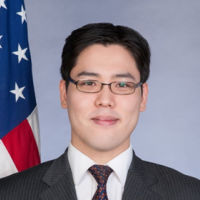DMGS-Kennan Distinguished Speakers Series: The Impact of Sanctions on Russia's Elites
Sanctions on Russia have transformed Russia’s relationship with the West. While its economic impact can be quantified, the ripple effect of sanctions on Russia's elites may be even more consequential. By disrupting elite access to Western financial and legal services, sanctions undermine the connections critical to Putin’s political economy. Nigel Gould-Davies and Daniel Ahn discussed how the response to sanctions by economic elites will shape Russia’s future.
Selected Quotes:
Nigel Gould-Davies:
“This is the most challenging time that President Putin has faced since he took office. There is a very popular concern as well about the direction of travel of the country. That raises the question: How might the situation evolve, and what might the drivers of change be?”
“Change takes place from within rather than from below. Major change always takes place, or certainly is initiated, by elites themselves.”
“Why does this matter? Because an important sector of Russian elites are disproportionately dependent on access to western financial, legal property and public relation systems. Very interesting paradox.”
“Their ability to access and enjoy asset protection, legal protection and so on, helps to stabilize the domestic political border.”
“Sanctions are not intended as a sort of blunt instrument, not intended to impose pain on the economy as a whole, certainly not in the short term. Nor are they designed to hurt a large number of small people. They are not designed to cause pain or suffering.”
“Let us recall too, how much variation Russia has shown in its forms of governance in its past 40 years. Russia appears to be strong, but much more often it’s shown itself to be brittle.”
David Ahn:
“Much of the previous literature on the economic impact of sanctions has naturally focused on macroeconomic data, given that the sanction’s policies were themselves macroeconomic in nature. They were comprehensive embargo style sanctions against the entire economy. But of course, as everyone knows, recently we have seen the real rapid genesis of targeted sanctions that focus against specific individuals, elites, firms, certain types of financial or technology transactions. So I suppose we would argue that this requires a very radically different data approach.”
“As we dove further in we realized that the sanctions are not occurring in a vacuum. The Russian government seems to be responding endogenously to the sanctions by providing large amounts of largesse, government largesse, to these lucky firms.”
“These sanctions were not meant to have a big macroeconomic effect, but they were meant to have a dramatic effect on the firms. And they do seem to work as designed, as long as the regime does not go in and then bail them out. Once they are bailed out, obviously the tactical impact upon the firm or the elite themselves would be very different from what is intended.”
“Obviously the agency as to who is responsible for this set of circumstances is very different. In the one case, the sanctions program by design is meant to impact the economy as a whole, in another case it is meant to impact the elites, but it is the choice of the target regime to shift resources to protect its elite at the expense of the public.”
Speakers

Senior Fellow for Russia and Eurasia, International Institute for Strategic Studies, United Kingdom

Managing Director, Chief U.S. Economist, Head of Macroeconomic Strategy, BNP Paribas
Hosted By

Kennan Institute
The Kennan Institute is the premier US center for advanced research on Eurasia and the oldest and largest regional program at the Woodrow Wilson International Center for Scholars. The Kennan Institute is committed to improving American understanding of Russia, Ukraine, Central Asia, the South Caucasus, and the surrounding region through research and exchange. Read more
